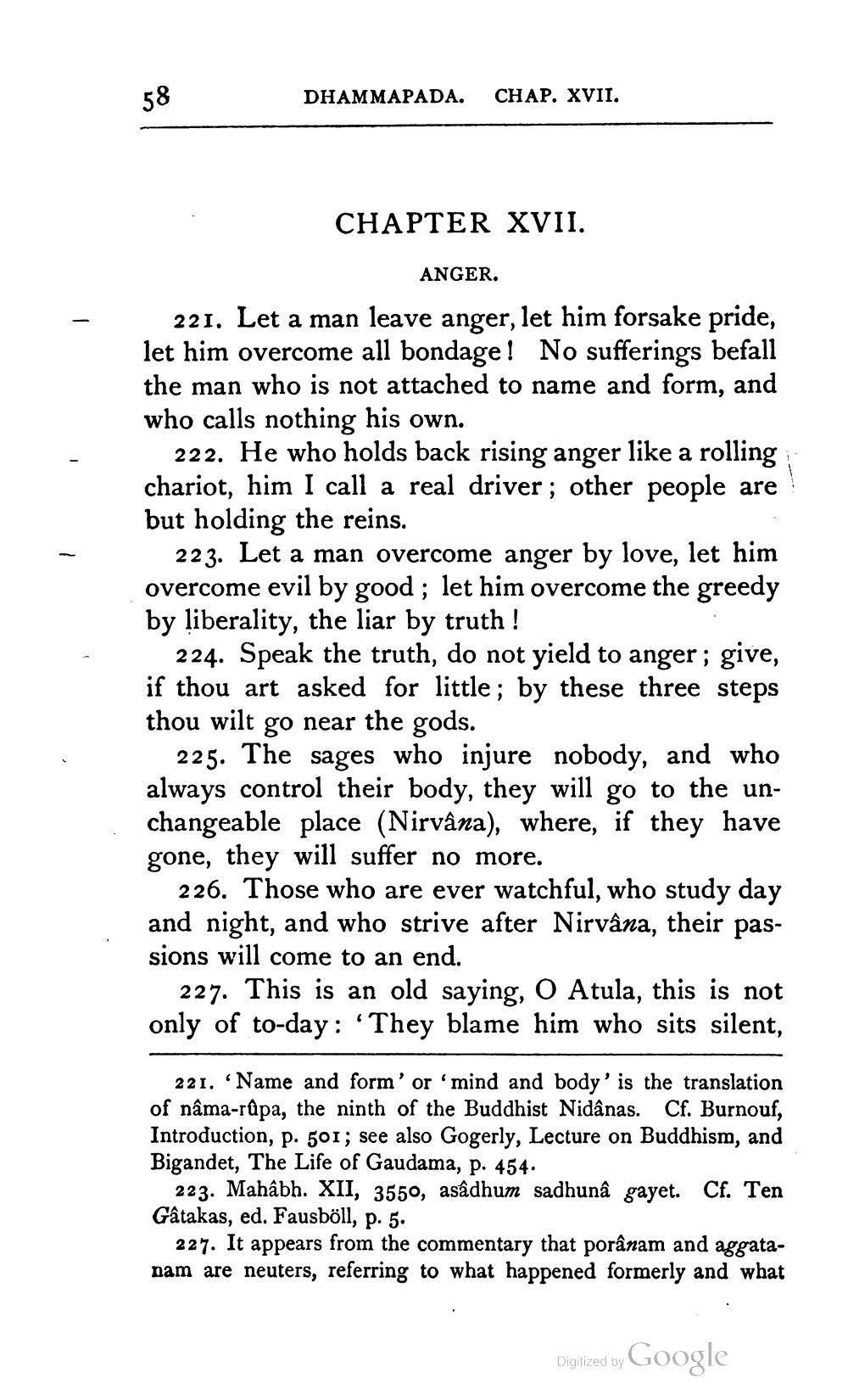________________
DHAMMAPADA. CHAP. XVII.
CHAPTER XVII.
ANGER. 221. Let a man leave anger, let him forsake pride, let him overcome all bondage! No sufferings befall the man who is not attached to name and form, and who calls nothing his own.
222. He who holds back rising anger like a rolling chariot, him I call a real driver; other people are ! but holding the reins.
223. Let a man overcome anger by love, let him overcome evil by good ; let him overcome the greedy by liberality, the liar by truth !
224. Speak the truth, do not yield to anger; give, if thou art asked for little; by these three steps thou wilt go near the gods.
225. The sages who injure nobody, and who always control their body, they will go to the unchangeable place (Nirvâna), where, if they have gone, they will suffer no more.
226. Those who are ever watchful, who study day and night, and who strive after Nirvana, their passions will come to an end.
227. This is an old saying, O Atula, this is not only of to-day: 'They blame him who sits silent,
221. 'Name and form' or 'mind and body' is the translation of nâma-rûpa, the ninth of the Buddhist Nidanas. Cf. Burnouf, Introduction, p. 501; see also Gogerly, Lecture on Buddhism, and Bigandet, The Life of Gaudama, p. 454.
223. Mahâbh. XII, 3550, asâdhum sadhunâ gayet. Cf. Ten Gâtakas, ed. Fausböll, p. 5.
227. It appears from the commentary that porânam and aggatanam are neuters, referring to what happened formerly and what
Digitized by Google




